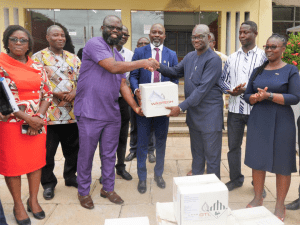Previous slide
Next slide










Slide 1
Slide 2
Slide 3
Slide 3
Slide 3
Slide 3
Slide 3
Slide 3
Slide 3
Slide 3
About Us

About Us
The Water Research Institute (WRI) is one of the 13 institutes of the Council for Scientific and Industrial Research (CSIR). It was formed in 1996 from the merger of the Institute of Aquatic Biology and the Water Resources Research Institute. WRI has a mandate to conduct research into water and related resources. WRI generates and provides scientific information, strategies and services toward the rational development, utilization and management of the water resources of Ghana in support of the socio–economic advancement of the country, especially in the agriculture, health, industry, energy, transportation, education and tourism sectors.
Public Notice









